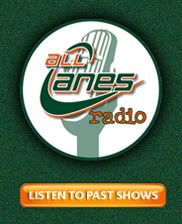MESA, Ariz. — Cubs left-hander Scott Maine is a walking, talking public-service announcement, complete with scars and a metal-reinforced forehead he can use to emphasize a point.
‘‘My head right now is stronger than it was before,’’ Maine says. ‘‘I can head-butt that [locker wall] and put a hole in it.’’
No, that’s OK.
‘‘The doctor said, ‘Your head’s going to be stronger than it ever was,’ ’’ he says, ‘‘because when the bones fuse over the metal, it’s stronger than when it’s just bone.’’
PSA No. 1: Don’t speed on Florida’s Turnpike during rush hour, kids.
Maine, a favorite to open the season in the Cubs’ bullpen, possibly as the only rookie on the roster, speaks evenly and matter-of-factly about more events that reshaped — and in some cases nearly ended — his life in just 26 years than most people experience in a lifetime.
And he can provide the dates.
Aug. 9, 2005. That was the day the rescue workers found the University of Miami pitcher 50 feet from his SUV after he lost control while speeding near Fort Lauderdale to get to a round of golf with his buddies. Maine wasn’t wearing a seat belt. He went off the highway and directly into some trees, fracturing his skull in 24 places when he hit the windshield.
Somehow he retained enough consciousness to kick open the door and crawl from the vehicle before collapsing.
He was in the hospital for three weeks, including two days in an induced coma, and still has three plates and four screws in his skull, plus a scar that starts on one side of his head, runs over his hairline and down the other side.
‘‘But I’m pretty much the same as I was before,’’ he says. He got headaches regularly for about a year afterward, ‘‘but other than that, things are pretty normal.’’
PSA No. 2: Always wear your seat belt — even if your back-seat sound system is so big it pushes into the driver’s seat and makes the belt hang awkwardly over your pitching shoulder.
‘‘I always thought if I got in a little accident, it would hurt my shoulder, so I never wore it,’’ he says.
The car crash derailed much of his baseball season that year at Miami, like the Tommy John surgery the year before and the hand surgery that ate up part of another season.
It might have made him one of the longest shots to hit when he finally made his major-league debut last season with the Cubs, producing an impressive 2.08 ERA in 13 appearances down the stretch.
If there’s a major lingering effect from what he’s gone through, it may be the even-keeled approach he seems to have added to what already was a healthy level of fearlessness.
‘‘I’ve pretty much had it all happen to me,’’ says Maine, who also took a line drive off his ear during a high school all-star game. ‘‘I’ve been there, done that . . .’’
‘‘I don’t get worked up like some other people would. I’m pretty easy.’’
He even has started to slow down on the road — something that didn’t happen immediately after the accident for the former BMX and go-kart racer.
‘‘I’ve always kind of had a need for speed,’’ says Maine, who once got his new truck up to 185 mph on an open road while driving cross-country. ‘‘I haven’t gone that fast in a while. It wasn’t necessarily the accident that taught me a lesson. I just turned 26, and I find myself going under the speed limit now. I don’t know why. Where I used to be in a rush to get somewhere, now I’m not.’’
One theory: ‘‘I’ve been sober since 2008. That might have something to do with it.’’
Oct. 16, 2008. That was the last time Maine had a drink.
No drinking was involved in the accidents, and the speed and the booze were separate issues — albeit functions of the same active, thrill-seeking personality.
‘‘I didn’t drink all the time, but when I did, I never could control it,’’ he says. ‘‘If I went out, I would have one, and that would turn into 10.’’
PSA No. 3: Quit drinking and it will help you get to the majors.
Maine says no single event made him stop. He just started realizing the negative impact drinking was having on his life and career path.
‘‘Just as far as throwing — if you were to go out and drink the night you threw, the next day you’d feel a thousand times worse than you would if you didn’t drink,’’ he says.
‘‘I’m not saying that’s the reason [for getting to the big leagues], but I’m sure it helped.’

(suntimes.com)



